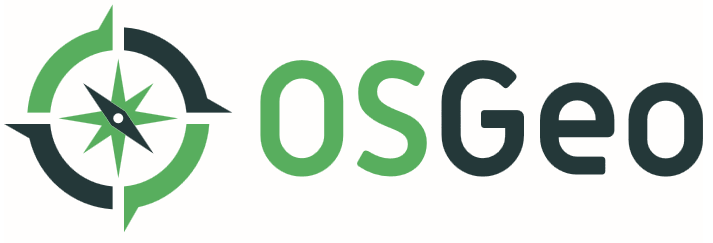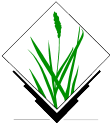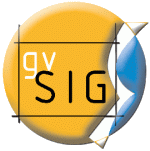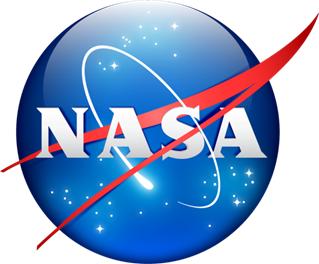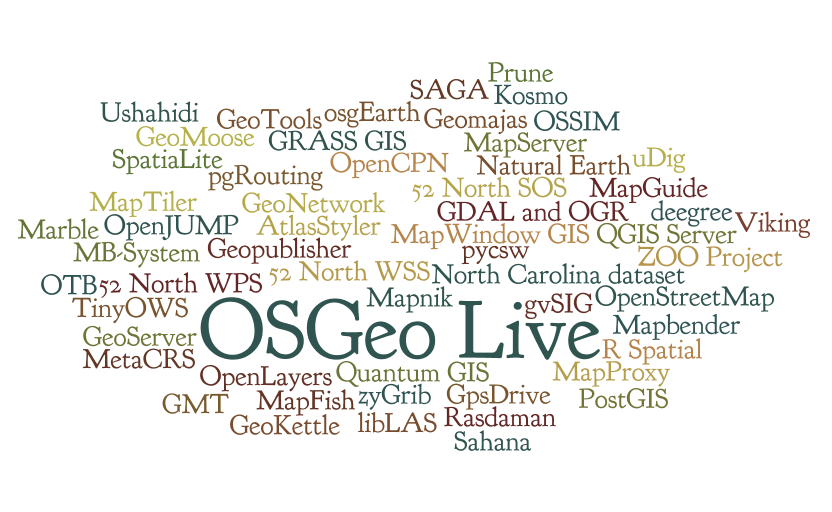Difference between revisions of "Google Summer of Code 2018 Ideas"
m |
|||
| (16 intermediate revisions by 2 users not shown) | |||
| Line 29: | Line 29: | ||
To add your page, <strong>please contact the GSoC admin team</strong> to let them know of your ideas page, by sending an email to [mailto:gsoc-admin@osgeo.org gsoc-admin@osgeo.org] | To add your page, <strong>please contact the GSoC admin team</strong> to let them know of your ideas page, by sending an email to [mailto:gsoc-admin@osgeo.org gsoc-admin@osgeo.org] | ||
| + | |||
| + | ''More coming soon: Get started talking to your favorite project's development team today!'' | ||
Each participating project's list of ideas is on the respective projects' wikis, with a short description of the project and what type of students would be interested in it: | Each participating project's list of ideas is on the respective projects' wikis, with a short description of the project and what type of students would be interested in it: | ||
| Line 34: | Line 36: | ||
=== OSGeo Foundation graduated projects === | === OSGeo Foundation graduated projects === | ||
| − | |||
[[Image:logo-grass.png|60px|right]] | [[Image:logo-grass.png|60px|right]] | ||
| Line 52: | Line 53: | ||
:* ''Idea'': We need to extend support to x64 based platforms to handle larger datasets and circumvent memory restrictions. This is a distribution and packaging project which will involve most/all of OSGeo member projects. (''ed. note: keep in mind that to fulfill GSoC requirements each project must have a majority coding component, so lots of scripting, testing, and Makefiles!'') | :* ''Idea'': We need to extend support to x64 based platforms to handle larger datasets and circumvent memory restrictions. This is a distribution and packaging project which will involve most/all of OSGeo member projects. (''ed. note: keep in mind that to fulfill GSoC requirements each project must have a majority coding component, so lots of scripting, testing, and Makefiles!'') | ||
--> | --> | ||
| + | |||
[[Image:logo-gvSIG.png|60px|right]] | [[Image:logo-gvSIG.png|60px|right]] | ||
| − | * [ | + | * [http://www.gvsig.com/es/gsoc-/gsoc-2018 '''gvSIG''' Ideas]: gvSIG is a free GIS project for [http://www.gvsig.com/en/web/guest/products/gvsig-desktop Desktop]. The gvSIG project looks for students with Java or Python skills that want to develop new ideas on this software. |
| + | |||
<!-- | <!-- | ||
[[Image:Pycsw-logo.png|60px|right]] | [[Image:Pycsw-logo.png|60px|right]] | ||
| Line 62: | Line 65: | ||
* [http://opticks.org/confluence/display/opticksDev/Google+Summer+of+Code '''Opticks''' Ideas]: [http://opticks.org/ Opticks] is an extensible [http://en.wikipedia.org/wiki/Remote_sensing remote sensing] and imagery analysis desktop application. It provides a framework to process remote sensing data such as [http://en.wikipedia.org/wiki/Hyperspectral_imaging Hyperspectral] (HSI), [http://en.wikipedia.org/wiki/Multi-spectral_image Multispectral] (MSI), and [http://en.wikipedia.org/wiki/Synthetic_aperture_radar Synthetic aperture radar] (SAR) imagery and video. The application is written in C++ and licensed under LGPL v2.1. Extensions are written using C++ or Python. You can review the [http://opticks.org/confluence/display/opticksExt/All+Opticks+Extensions available extensions] and [http://opticks.org/confluence/display/opticks/Feature+Tour+-+Your+Data feature tour] to get a better idea of what Opticks can do. | * [http://opticks.org/confluence/display/opticksDev/Google+Summer+of+Code '''Opticks''' Ideas]: [http://opticks.org/ Opticks] is an extensible [http://en.wikipedia.org/wiki/Remote_sensing remote sensing] and imagery analysis desktop application. It provides a framework to process remote sensing data such as [http://en.wikipedia.org/wiki/Hyperspectral_imaging Hyperspectral] (HSI), [http://en.wikipedia.org/wiki/Multi-spectral_image Multispectral] (MSI), and [http://en.wikipedia.org/wiki/Synthetic_aperture_radar Synthetic aperture radar] (SAR) imagery and video. The application is written in C++ and licensed under LGPL v2.1. Extensions are written using C++ or Python. You can review the [http://opticks.org/confluence/display/opticksExt/All+Opticks+Extensions available extensions] and [http://opticks.org/confluence/display/opticks/Feature+Tour+-+Your+Data feature tour] to get a better idea of what Opticks can do. | ||
--> | --> | ||
| − | + | ||
[[Image:logo-postgis.png|60px|right]] | [[Image:logo-postgis.png|60px|right]] | ||
| − | * [ | + | * [https://trac.osgeo.org/postgis/wiki/GoogleSummerCode2018 '''PostGIS''' Ideas]: [http://postgis.net PostGIS] spatially enables the popular PostgreSQL object-relational database, allowing it to be used as a back-end database for geographic information systems (GIS) and web-mapping applications. |
| − | + | ||
<!-- | <!-- | ||
[[Image:logo-ossim.png|90px|right]] | [[Image:logo-ossim.png|90px|right]] | ||
| Line 78: | Line 81: | ||
* [http://wiki.osgeo.org/wiki/MapServer_2015_SOC_Ideas '''Mapserver''' SoC Ideas]: MapServer is a Web Mapping Engine; an Open Source platform for publishing spatial data and interactive mapping applications to the web. | * [http://wiki.osgeo.org/wiki/MapServer_2015_SOC_Ideas '''Mapserver''' SoC Ideas]: MapServer is a Web Mapping Engine; an Open Source platform for publishing spatial data and interactive mapping applications to the web. | ||
--> | --> | ||
| + | |||
=== OSGeo Foundation Incubation projects === | === OSGeo Foundation Incubation projects === | ||
| + | |||
[[Image:Logo-istSOS.png|100px|right]] | [[Image:Logo-istSOS.png|100px|right]] | ||
* [https://sourceforge.net/p/istsos/wiki/GSoC_ideas_2018/ '''istSOS''' Ideas]: [http://sourceforge.net/projects/istsos/ istSOS] is a complete sensor data management system for acquiring, storing and dispatching time-series observations. istSOS is compliant with the Sensor Observation Service (SOS) version 1.0 and 2.0 standard from the Open Geospatial Consortium (OGC) and offers unique extended capabilities to support scientific data analyses (integrated quality assurance, RESTful API, on the fly processing with virtual procedures, remote data aggregation and time-space re-projection etc.). istSOS core libraries are written in Python while it easy to use interface is Web based. | * [https://sourceforge.net/p/istsos/wiki/GSoC_ideas_2018/ '''istSOS''' Ideas]: [http://sourceforge.net/projects/istsos/ istSOS] is a complete sensor data management system for acquiring, storing and dispatching time-series observations. istSOS is compliant with the Sensor Observation Service (SOS) version 1.0 and 2.0 standard from the Open Geospatial Consortium (OGC) and offers unique extended capabilities to support scientific data analyses (integrated quality assurance, RESTful API, on the fly processing with virtual procedures, remote data aggregation and time-space re-projection etc.). istSOS core libraries are written in Python while it easy to use interface is Web based. | ||
| − | + | ||
[[Image:Pywps logo.png|80px|right]] | [[Image:Pywps logo.png|80px|right]] | ||
| − | * [https://github.com/geopython/pywps/wiki/GSoC- | + | * [https://github.com/geopython/pywps/wiki/GSoC-2018-ideas '''PyWPS''' Ideas]: [http://pywps.org/ PyWPS] is an implementation of the Web Processing Service standard from the Open Geospatial Consortium. PyWPS is written in Python. PyWPS enables integration, publishing and execution of Python processes via the WPS standard. |
| − | + | ||
| + | |||
<!-- | <!-- | ||
[[Image:logo-geos.png|60px|right]] | [[Image:logo-geos.png|60px|right]] | ||
| Line 100: | Line 106: | ||
* [http://docs.codehaus.org/display/GEOTOOLS/Google+Summer+of+Code ''GSOC'']: [http://live.osgeo.org/en/overview/geotools_overview.html '''GeoTools'''] GeoTools is an open source Java library for working with geospatial data, including both data access, data structures, processing and a powerful rendering engine. GeoTools is a modular library used in a wide range of web service, command line tools and desktop applications. | * [http://docs.codehaus.org/display/GEOTOOLS/Google+Summer+of+Code ''GSOC'']: [http://live.osgeo.org/en/overview/geotools_overview.html '''GeoTools'''] GeoTools is an open source Java library for working with geospatial data, including both data access, data structures, processing and a powerful rendering engine. GeoTools is a modular library used in a wide range of web service, command line tools and desktop applications. | ||
--> | --> | ||
| − | + | ||
[[Image:ZOO-Project-mini.png|right]] | [[Image:ZOO-Project-mini.png|right]] | ||
| − | * [http:// | + | * [http://zoo-project.org/trac/wiki/ZOO_GSoC_Idea_2018 '''ZOO-Project''' Ideas]: [http://www.zoo-project.org ZOO-Project] is a WPS open source project released under a MIT/X-11 style license. It provides support for WPS 1.0.0 and 2.0.0 versions and is able to handle services implemented in various programming languages. |
| − | + | ||
<!-- | <!-- | ||
We expect ideas also from [http://live.osgeo.org/en/overview/mapbender_overview.html MapBender], [http://live.osgeo.org/en/overview/geomoose_overview.html GeoMOOSE], [http://mapserver.org/ MapServer], ... | We expect ideas also from [http://live.osgeo.org/en/overview/mapbender_overview.html MapBender], [http://live.osgeo.org/en/overview/geomoose_overview.html GeoMOOSE], [http://mapserver.org/ MapServer], ... | ||
| Line 112: | Line 118: | ||
--> | --> | ||
=== OSGeo Foundation community projects === | === OSGeo Foundation community projects === | ||
| + | |||
[[Image:Pgrouting-logo.png|60px|right]] | [[Image:Pgrouting-logo.png|60px|right]] | ||
* [https://github.com/pgRouting/pgrouting/wiki/GSoC-Ideas '''pgRouting''' Ideas]: [http://pgrouting.org pgRouting] extends the PostGIS / PostgreSQL geospatial database to provide geospatial routing functionality and more. | * [https://github.com/pgRouting/pgrouting/wiki/GSoC-Ideas '''pgRouting''' Ideas]: [http://pgrouting.org pgRouting] extends the PostGIS / PostgreSQL geospatial database to provide geospatial routing functionality and more. | ||
| + | |||
=== Guest projects === | === Guest projects === | ||
| + | |||
Like-minded geospatial projects to take part under OSGeo umbrella. If you wish your software project to be listed here, please contact the GSoC admin team, by sending an email to [mailto:gsoc-admin@osgeo.org gsoc-admin@osgeo.org] | Like-minded geospatial projects to take part under OSGeo umbrella. If you wish your software project to be listed here, please contact the GSoC admin team, by sending an email to [mailto:gsoc-admin@osgeo.org gsoc-admin@osgeo.org] | ||
| − | + | ||
[[Image:Nasa meatball logo.png|60px|right]] | [[Image:Nasa meatball logo.png|60px|right]] | ||
| − | * [[NASA- | + | * [[NASA-ESA_WebWorldWind_GSoC_2018_Ideas | '''NASA-ESA Web World Wind''']] Ideas: [https://webworldwind.org/ NASA-ESA Web World Wind] is a 3D virtual globe API for HTML5 and JavaScript. |
| − | -- | + | |
| − | + | ||
| + | [[Image:Gisquick.png|60px|right]] | ||
| + | * [https://github.com/gislab-npo/gisquick/wiki/GSoC-Ideas '''Gisquick'''] Ideas: [http://gisquick.org/ Gisquick] is an open source geospatial data publishing platform. | ||
| + | |||
<!-- | <!-- | ||
* [[OL3-Google-Maps-GSoC_2017_Ideas | '''OL3-Google-Maps''']] ideas, [http://mapgears.github.io/ol3-google-maps/ OL3-Google-Maps] is a library that allows the use of the Google Maps API within OpenLayers using JavaScript. | * [[OL3-Google-Maps-GSoC_2017_Ideas | '''OL3-Google-Maps''']] ideas, [http://mapgears.github.io/ol3-google-maps/ OL3-Google-Maps] is a library that allows the use of the Google Maps API within OpenLayers using JavaScript. | ||
--> | --> | ||
| − | |||
<!-- | <!-- | ||
[[Image:Oba_logo.png|60px|right]] | [[Image:Oba_logo.png|60px|right]] | ||
Latest revision as of 07:44, 13 February 2018
- Back to the main OSGeo Google Summer of Code 2018 wiki page.
OSGeo Google Summer of Code 2018
The Open Source Geospatial Foundation would like to extend a welcome to all SoC students. On this page you will find links to a host of ideas organized by project. You will find ideas ranging from the depths of computer science graph theory to the heights of visualization. One thing all these ideas have in common is lots and lots of spatial data.
These ideas are *only* to motivate you, and serve as example of the kind of hills we want to charge up. Your own ideas are more than welcomed - they are encouraged. We view you as the next wave of open source leaders and the future of the geospatial industry; show us what you've got!
- Students: check out the Google Summer of Code Recommendations for Students page. If you need more information on how to apply you can contact all the mentors via the OSGeo-SoC mailing list (see below) And look at GSoC Roles and Responsibilities to understand a successfull teamwork and interplay of project, mentors and students.
- There is a Google SoC flyer to look at and post in appropriate places.
- Ok, OSGeo is involved in working with maps and things, but what kind of projects does it really do? Have a look at the live blog feed to see what people are working on right now.
- Mentors, there's an additional link providing some tips and specifying your responsibilities on the main OSGeo Google Summer of Code 2018 Administrative wiki page.
The ideas pages
[Check back often, it's a work in progress]
To add your page, please contact the GSoC admin team to let them know of your ideas page, by sending an email to gsoc-admin@osgeo.org
More coming soon: Get started talking to your favorite project's development team today!
Each participating project's list of ideas is on the respective projects' wikis, with a short description of the project and what type of students would be interested in it:
OSGeo Foundation graduated projects
- GRASS GIS SoC Ideas: GRASS GIS is an open source GIS focusing on analysis, modeling and visualization. It is a collection of modules written in C and Python and has a GUI written in wxPython. If you know Python, or want to implement algorithms in C, take a look!
- gvSIG Ideas: gvSIG is a free GIS project for Desktop. The gvSIG project looks for students with Java or Python skills that want to develop new ideas on this software.
- PostGIS Ideas: PostGIS spatially enables the popular PostgreSQL object-relational database, allowing it to be used as a back-end database for geographic information systems (GIS) and web-mapping applications.
OSGeo Foundation Incubation projects
- istSOS Ideas: istSOS is a complete sensor data management system for acquiring, storing and dispatching time-series observations. istSOS is compliant with the Sensor Observation Service (SOS) version 1.0 and 2.0 standard from the Open Geospatial Consortium (OGC) and offers unique extended capabilities to support scientific data analyses (integrated quality assurance, RESTful API, on the fly processing with virtual procedures, remote data aggregation and time-space re-projection etc.). istSOS core libraries are written in Python while it easy to use interface is Web based.
- PyWPS Ideas: PyWPS is an implementation of the Web Processing Service standard from the Open Geospatial Consortium. PyWPS is written in Python. PyWPS enables integration, publishing and execution of Python processes via the WPS standard.
- ZOO-Project Ideas: ZOO-Project is a WPS open source project released under a MIT/X-11 style license. It provides support for WPS 1.0.0 and 2.0.0 versions and is able to handle services implemented in various programming languages.
OSGeo Foundation community projects
- pgRouting Ideas: pgRouting extends the PostGIS / PostgreSQL geospatial database to provide geospatial routing functionality and more.
Guest projects
Like-minded geospatial projects to take part under OSGeo umbrella. If you wish your software project to be listed here, please contact the GSoC admin team, by sending an email to gsoc-admin@osgeo.org
- NASA-ESA Web World Wind Ideas: NASA-ESA Web World Wind is a 3D virtual globe API for HTML5 and JavaScript.
Don't see in the list the project you're interested in?
Contact them in their developers mailing list! Feel free to propose your own idea and get feedback!
I want to apply as a student
Before applying as a student, check out the Google Summer of Code Recommendations for Students page.
Which project do I choose?
Most of the software projects are available pre-built on our Live demo { DVD | USB stick | VirtualMachine } with project overviews and short tutorials where you can try everything out.
- View the documents and download the ISO from http://live.osgeo.org
Important dates
[Back to Google Summer of Code 2018 @ OSGeo]

